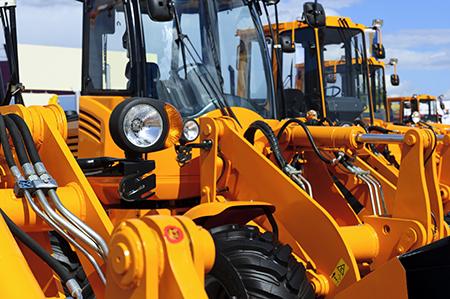Before we can delve into the etymology of ‘plant’ and its various meanings, it’s important to establish exactly what we mean by ‘plant machinery’. The term is widely used to refer collectively to the different apparatus and pieces of equipment used within the construction trade. However, the term does not cover the premises in which a company trades i.e. a shop or factory, the raw materials used, or the stock a company has.
The noun ‘plant’ is an interesting choice of word which is used to describe heavy machinery. Originating from the Latin word ‘planta’ which means sprout, the verb opposite to ‘planta’ is in fact ‘plantare’, meaning ‘to drive into the ground with the foot’. It’s quite curious that as a noun it appeals to growth and development and yet, as a verb, it implies a physical action which, in effect, stamps out life.
Strangely enough, the Latin ‘plantare’ also means to ‘fix in place’ which is similar to the action of planting something into the ground in order for it to grow. If we ignore for now the reference to growing, to ‘plant’ literally means to insert firmly and is a phrase which has been in use since the 1300s both as a literal and metaphorical expression, i.e. the planting of ideas. US slang developed the term in order for it to be employed as an alternative to bury something, or even someone.
When planting a seed, or a more developed shrub, you deliberately place it in a fixed position before burying the roots which soon tie the plant to the ground and give it life. As such, this term has become a modern metaphor for many things. In accounting terms, plant machinery is considered a fixed asset within a business.
Plant is also widely accepted as a shortened form of plantation, otherwise known as a large scale settling of immigrants in a foreign country, especially in the 16th and 17th centuries. Such settlements were referred to as "plantations" because the government hoped that the "transplanted" population would stay put in their new surroundings.
A plantation was a place of industrialised agriculture which has since developed into a factory. As such, an alternative label for a factory is plant. Machinery used within such a factory/plant is now very often shortened to ‘plant’.
If an item of equipment is large, difficult to move and therefore fixed in place, this item almost becomes synonymous with a plant because it behaves like a plant and, therefore, it is a plant. Anything from a telehandler to a bulldozer will be deliberately placed in prime position where work can begin. The boom is operated from the central cab with only small positional changes required once the machine is in place.
If we refer back to our original question, it seems that there is no definitive answer. However there is an interesting timeline suggesting the gradual coining of a phrase which is expressed today but very firmly rooted in the past.






